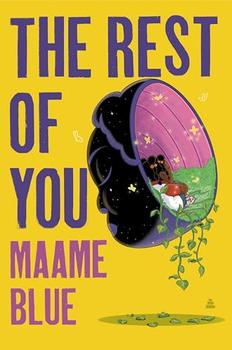Summary | Excerpt | Reading Guide | Reviews | Readalikes | Genres & Themes | Author Bio

Chapter One
The day Sudha stepped off the plane from India into Anju's arms, leaving a ruined marriage behind, their lives changed forever. And not just Sudha's and Anju's. Sunil's life changed, too. And baby Dayita's. Like invisible sound waves that ripple out and out, the changes reached all the way to India, to Ashok waiting on his balcony for the wind to turn. To their mothers in the neat squareness of their flat, upsetting the balance of their household, causing the mango pickles to turn too-sour and the guava tree in the backyard to grow extra-large pink guavas. The changes multiplied the way vines might in a magical tale, their tendrils reaching for people whose names Sudha and Anju did not even know yet.
Were the changes good or bad?
Can we use such simple, childish terms in asking this question? Neither of the cousins were simple women, though there was much that was childlike about them when they were together alone, or with Dayita. When Sunil was away.
Sunil. Anju's husband. Sudha's cousin-in-law. A young executive with a bright future in a prestigious computer company. But no. None of this tells us who he really is. Because he wasn't a simple man either.
It is not clear when Anju first sensed this. At their double wedding, when she stood beside Sunil, their bridal garments knotted, and watched him watch Sudha's forehead being marked with the red powder of wifehood? Months back, when he told Anju that it was a bad idea to bring her cousin to America? The night before Sudha's arrival, by which time it was too late? When did she first sense that though she loved him, she didn't always trust him?
But lately Anju doesn't trust the runaway roller-coaster of her own emotions either. The wild mood-swings after the miscarriage that would leave her weeping or laughing hysterically. The long bouts of depression, later, that immobilized her in bed, incapable of even answering the phone.
Guilt ate at her, a slow, pernicious rust. No matter how often Sunil assured her that the miscarriage could have been caused by any number of things, she didn't believe him. When the blackness came upon her, her mind turned heavy and stubborn, like one of those cement mixing trucks you pass sometimes on the road. A sentence would catch in it and begin to rotate, If only I'd listened to the doctor and not overworked myself, until it broke down into a phrase, If only I hadn't, If only I hadn't. It ended, always, in the same anguished chant. Prem Prem Prem.
She would rock her body from side to side, her neglected, will-o-the-wisp hair spreading its static on the sofa, fingers digging rigidly into her arms until they left bruises shaped like tiny petals.
"I don't know how to help you when you're like this," Sunil would say.
Afterwards, when the depression lifted, she would sometimes say, "You don't need to do anything."
Inside her head she added, Except love me.
Inside her head he replied, I do love you.
Inside her head she said, But not enough.
The night before Sudha arrives, Anju cannot sit still. Some of it is excitement, but mostly she is nervous. Why? Isn't this her dear, dear cousin, sister of her heart? They've protected, advised, cajoled, bullied, and stood up for each other all their lives. Each has been madly jealous of the other at some point. Each has enraged the other, or made her weep. Each has been willing to give up her happiness for her cousin. In short: they've loved each other the way they've never loved anyone else. Why then does Sudha's coming fill Anju with this unexpected dread?
If there are answers, she will not allow herself to think of them.
At dinner she is unable to eat. "But what if Sudha doesn't like it here?" she keeps saying.
It is the year of dangerous movements. Two weeks back, a major earthquake hit Los Angeles, causing $7 billion in damage and leaving over 10,000 people homeless. Will Anju and Sunil read this as an omen? Or will they discount it in the belief that every year has its own disasters?
Excerpted from The Vine of Desire by Chitra Divakaruni Copyright 2002 by Chitra Divakaruni. Excerpted by permission of Doubleday, a division of Random House, Inc. All rights reserved. No part of this excerpt may be reproduced or reprinted without permission in writing from the publisher.




When men are not regretting that life is so short, they are doing something to kill time.
Click Here to find out who said this, as well as discovering other famous literary quotes!
Your guide toexceptional books
BookBrowse seeks out and recommends the best in contemporary fiction and nonfiction—books that not only engage and entertain but also deepen our understanding of ourselves and the world around us.